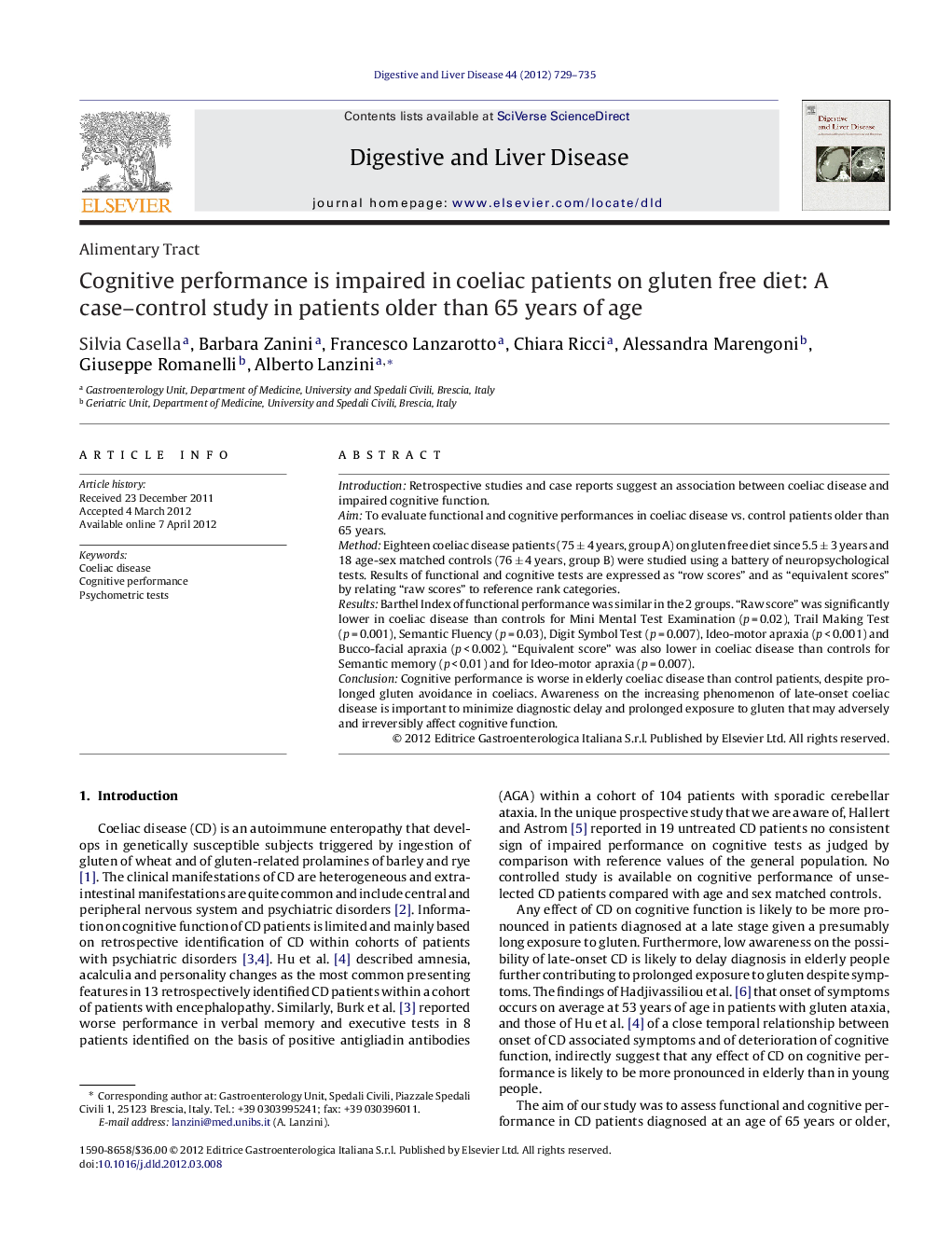| Article ID | Journal | Published Year | Pages | File Type |
|---|---|---|---|---|
| 3262799 | Digestive and Liver Disease | 2012 | 7 Pages |
IntroductionRetrospective studies and case reports suggest an association between coeliac disease and impaired cognitive function.AimTo evaluate functional and cognitive performances in coeliac disease vs. control patients older than 65 years.MethodEighteen coeliac disease patients (75 ± 4 years, group A) on gluten free diet since 5.5 ± 3 years and 18 age-sex matched controls (76 ± 4 years, group B) were studied using a battery of neuropsychological tests. Results of functional and cognitive tests are expressed as “row scores” and as “equivalent scores” by relating “raw scores” to reference rank categories.ResultsBarthel Index of functional performance was similar in the 2 groups. “Raw score” was significantly lower in coeliac disease than controls for Mini Mental Test Examination (p = 0.02), Trail Making Test (p = 0.001), Semantic Fluency (p = 0.03), Digit Symbol Test (p = 0.007), Ideo-motor apraxia (p < 0.001) and Bucco-facial apraxia (p < 0.002). “Equivalent score” was also lower in coeliac disease than controls for Semantic memory (p < 0.01) and for Ideo-motor apraxia (p = 0.007).ConclusionCognitive performance is worse in elderly coeliac disease than control patients, despite prolonged gluten avoidance in coeliacs. Awareness on the increasing phenomenon of late-onset coeliac disease is important to minimize diagnostic delay and prolonged exposure to gluten that may adversely and irreversibly affect cognitive function.
